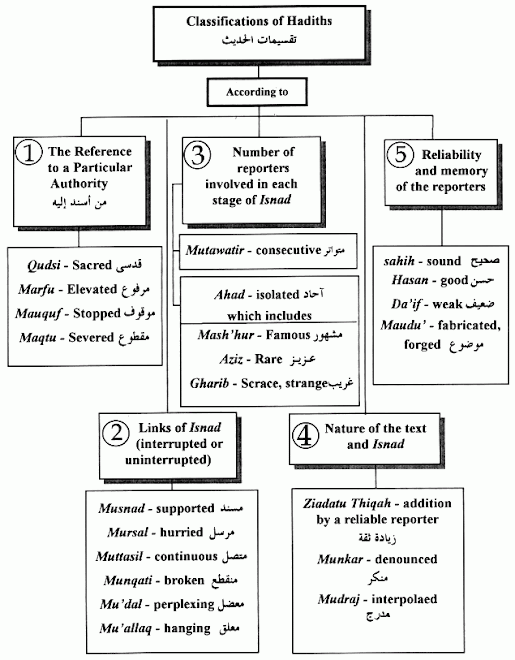 Abu 'Abdullah Muhammad ibn Isma'il ibn Ibrahim al-Bukhari al-Jufi (usually referred to as Imam al-Bukhari), was born in 810 and died in 870 C.E. in the important Central Asian city of Bukhara, which is now in modern day Uzbekistan. He is one of the two most important and highly-regarded Muslim compilers of ahadith (singular: hadith), traditions of the Prophet Muhammad's reported sayings, judgments, and actions. The other is Abu'l Husayn Muslim ibn al-Hajjaj Wushayri al-Nishaburi ("one from Nishapur," a city in the region of Khurasan in modern day Iran), known more commonly as by his shortened name, Muslim ibn al-Hajjaj or "Imam Muslim." Their two collections are among the "six books" that today make up the Sunni hadith cannon.
Abu 'Abdullah Muhammad ibn Isma'il ibn Ibrahim al-Bukhari al-Jufi (usually referred to as Imam al-Bukhari), was born in 810 and died in 870 C.E. in the important Central Asian city of Bukhara, which is now in modern day Uzbekistan. He is one of the two most important and highly-regarded Muslim compilers of ahadith (singular: hadith), traditions of the Prophet Muhammad's reported sayings, judgments, and actions. The other is Abu'l Husayn Muslim ibn al-Hajjaj Wushayri al-Nishaburi ("one from Nishapur," a city in the region of Khurasan in modern day Iran), known more commonly as by his shortened name, Muslim ibn al-Hajjaj or "Imam Muslim." Their two collections are among the "six books" that today make up the Sunni hadith cannon.Their two ahadith collections, Sahih al-Bukhari and Sahih Muslim, are the most widely respected and commonly referred to collections of ahadith by Sunni Muslims and Islamicist scholars alike. Shi'is, particularly Twelver Shi'is, have their own ahadith collections and do not generally consider the Sahihayn ("two Sahih collections" of al-Bukhari and Muslim) to be reliable. "Sahih" is a technical term referring to the "soundness" of the ahadith contained in the collections, a judgment based on a number of factors including the asaneed (singular: isnad) or the chains of transmission (transmitters) through which the ahadith are narrated). A detailed Sunni Muslim hagiographical biography of al-Bukhari can be found HERE.
The translations below are largely based on those of Muhammad Muhsin Khan's dual-language translation of Sahih al-Bukhari, published by Dar us-Salam Publications. I have made some amendments.
__________________________________
Hadith #2797, Kitab al-Jihad, Sahih al-Bukhari
Abu al-Yaman from al-Zuhri from Sa'id ibn al-Musayyab narrated from Abu Hurayrah: The Prophet said: "By Him [God] in Whose Hands my soul is: Were it not for some men amongst the Believers [Muslims] who dislike to be left behind me and whom I cannot provide with means of conveyance, I would certainly never remain behind any Sariyah [battalion, military unit] going out for jihad [struggle, in this case armed struggle] in the Path of God [as ordained by God in the Qur'an]. By Him in Whose hands my soul is: I would love to be martyred [fighting] in the path of God and then come back to life and be martyred again, and then come back to life and be martyred again."
Hadith #2817, Kitab al-Jihad, Sahih al-Bukhari
Muhammad bin Nashar from Ghundar from Sh'ubah narrated by Anas ibn Malik: The Prophet said: "Nobody who enters Paradise likes to return to the world even if he got everything on the Earth, except a martyr who wishes to return to the world so that he may be martyred ten times because of the honor and dignity he receives from God."
These two hadith are famous ones and are quoted by jihadi-takfiris, including Al-Qa'ida Central leader Usama bin Laden in the introductory segment to the video series Wind of Paradise, a series of four videos (currently) dedicated to the group's "martyrs" in the Afghanistan-Pakistan theater. See the short embedded video below [starts at the1:43-minute mark].





